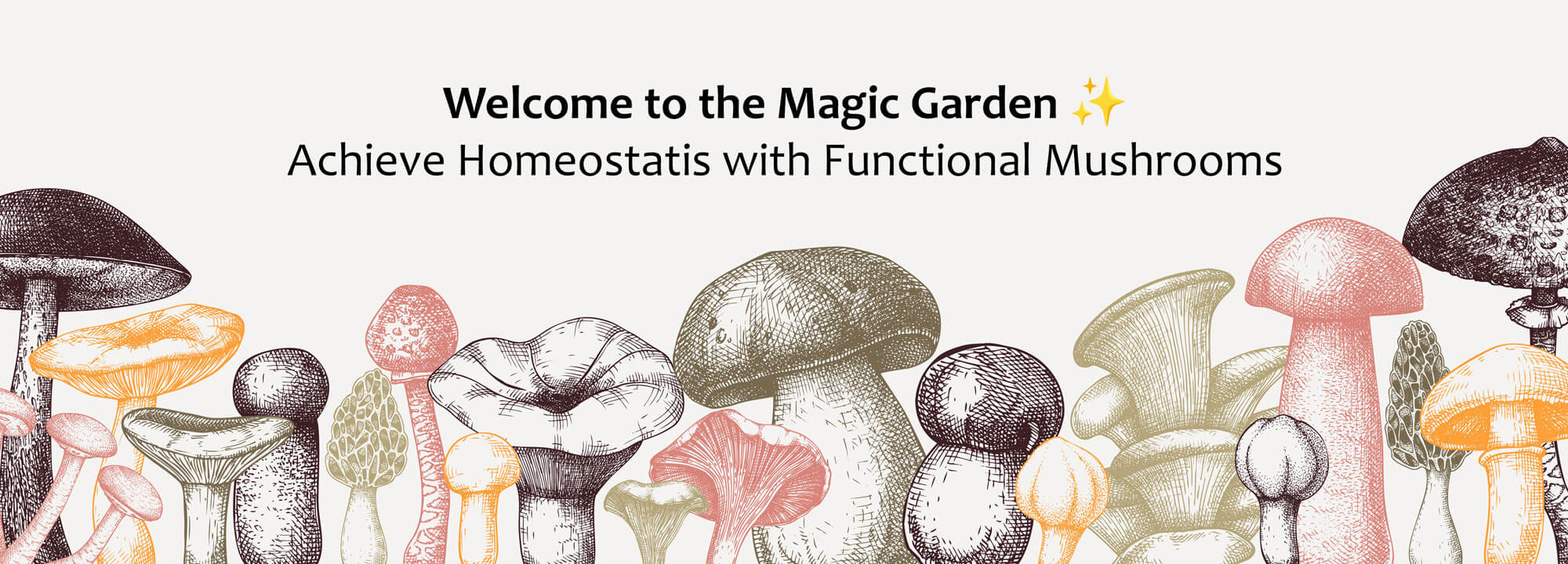
Introduction to Adaptogens
Adaptogens are potent mushrooms or herbs that help the body achieve homeostasis, or an equilibrium among your physiological processes. Adaptogenic mushrooms, also referred to as medicinal or functional mushrooms, have been an integral part of Chinese medicine for centuries, but are just now gaining more mainstream popularity in the West. Importantly, all functional mushrooms contain polysaccharides, which support normal blood sugar levels (for healthier cholesterol levels) and the immune system.
Functional Mushrooms vs Magic Mushrooms
The difference is very simple: magic mushrooms are psychedelic, and functional mushrooms are not. Magic mushrooms contain psilocybin, which becomes hallucinogenic when metabolized in the body. So, although you may feel great when using functional mushrooms, you won’t experience any psychedelic effects!
Types of Functional Mushrooms
There are many types of adaptogenic mushrooms that can help you feel more healthy and balanced. Let’s explore some of the most popular ones.
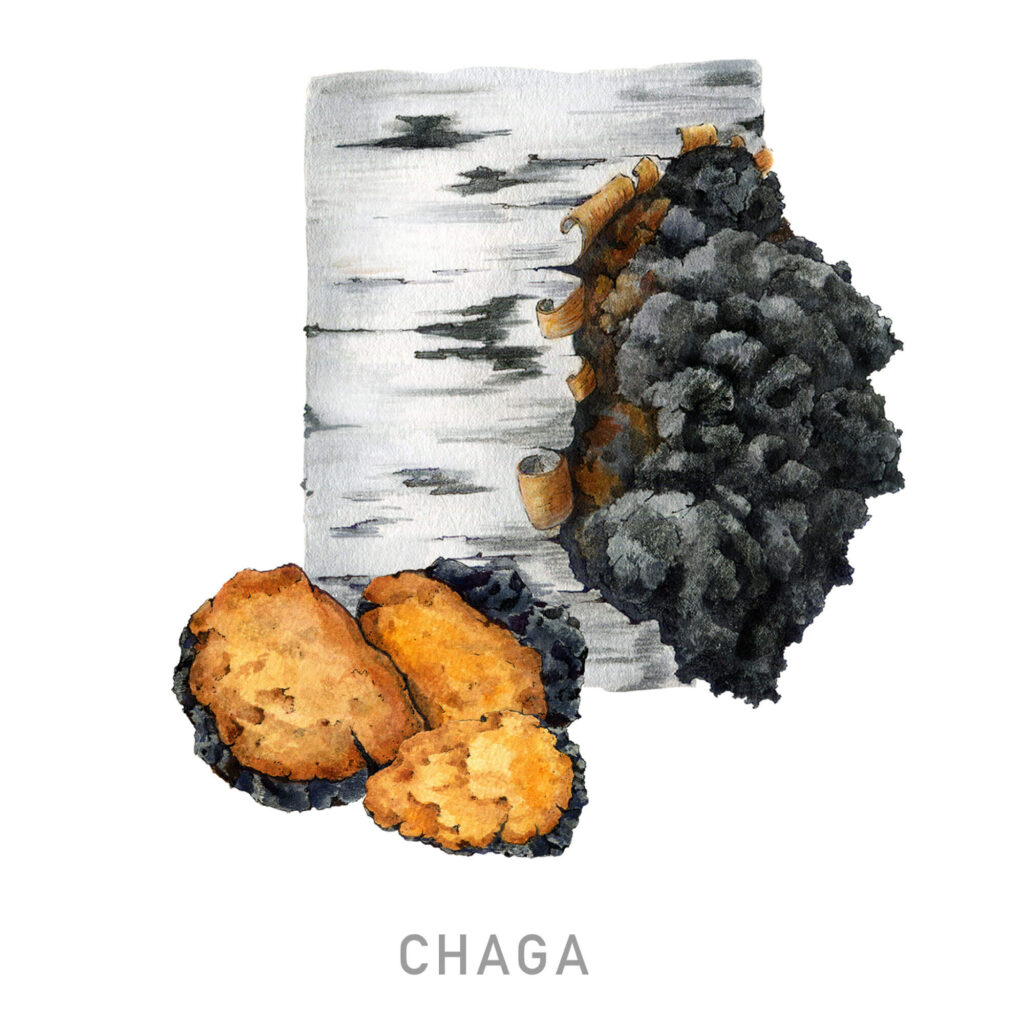
Chaga
Chaga is well known for its antioxidant properties. Oxidation in your body produces unstable chemicals called free radicals, which can damage cell membranes, and can be accelerated by stress, smoking cigarettes, alcohol, sunlight and pollution. Chaga can also reduce Inflammation, which leads to many other illnesses and chronic diseases.
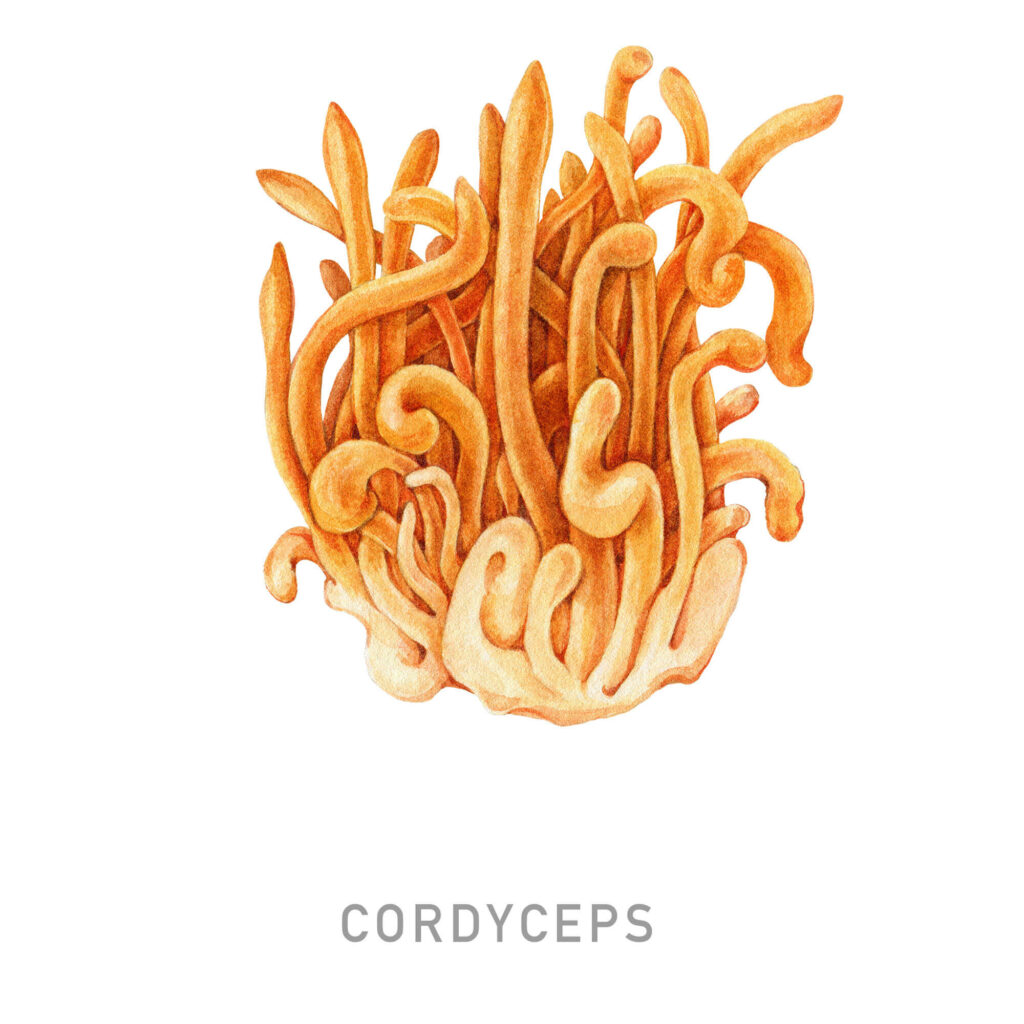
Cordyceps
Cordyceps are amazing for energy production. They support the body’s production of the molecule ATP, or adenosine triphosphate, which carries energy into cells. ATP is your body’s fuel for muscle contraction, and therefore it gets depleted during vigorous exercise. ATP is embraced by athletes for its ability to support heightened performance by providing energy to our muscles. Cordyceps are also known for maintaining a youthful sex drive and sense of vitality. Ooh la la!
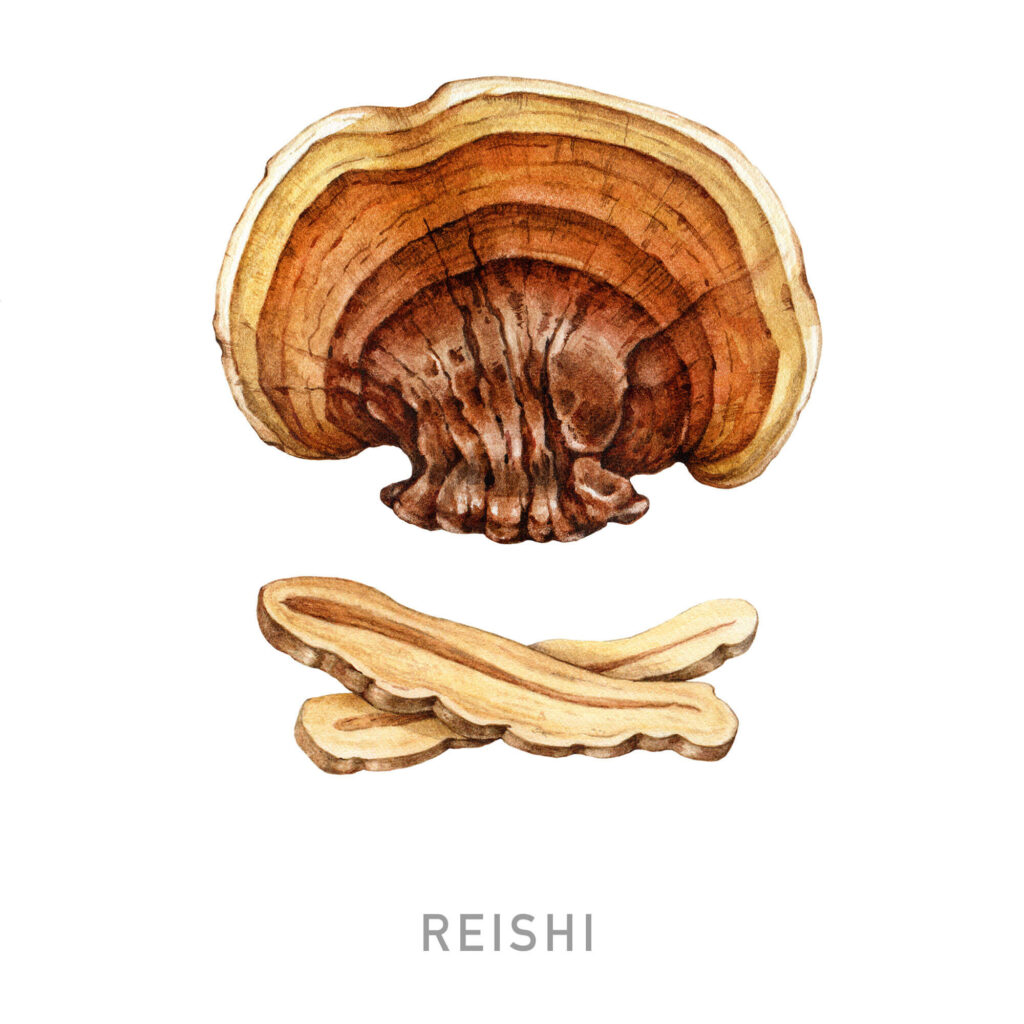
Reishi
Studies show that the reishi mushroom can support the body in a variety of ways: reducing fatigue, boosting the immune system, acting as an antioxidant by fighting free radical damage, and regulating the body’s testosterone levels (which also supports energy). Its mood boosting properties also support overall mental stability.

Lion’s Mane
Lion’s mane got its name from its beautiful tendrils that cascade from its mushroom cap, resembling a big mane. It’s a great daytime supplement, as it’s known for clearing brain fog and enhancing mental clarity, focus, and concentration. Buddhist monks used lion’s mane as a tool to help their focus and clarity during prayer and meditation. Lion’s mane is also used for its stress management properties to achieve a sense of balance. Lastly, Lion’s Mane can also help reduce inflammation for post workout, etc.

Turkey Tail
Turkey tail gets its name from the appearance of its cap, which resembles the tail of our favorite sacrificial autumnal bird. It Is best known for supporting the immune system in the winter months, but also supports our microbiome and gastrointestinal health. Lastly, this supplement may assist management of stress and fatigue.
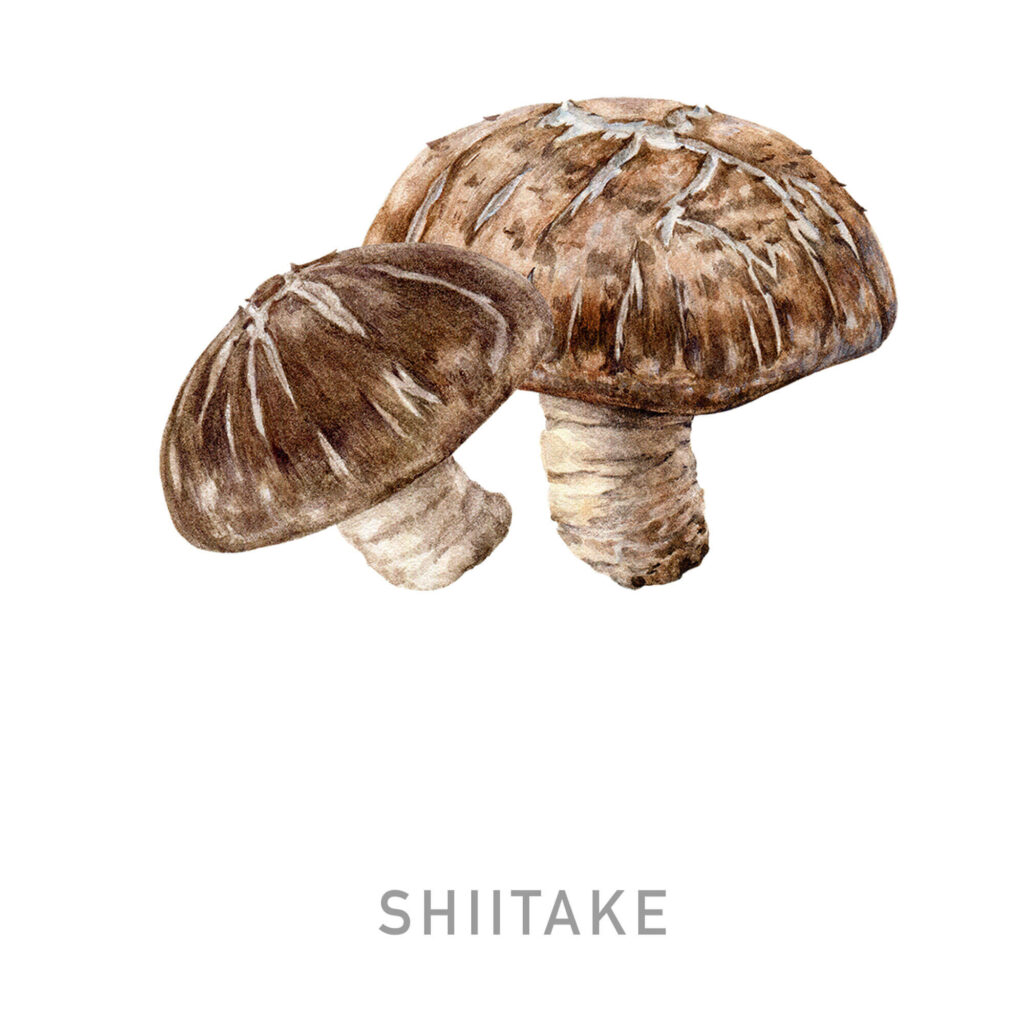
Shiitake
Shiitake mushrooms are more widely known because they are very popular in cooking. They are high in 1,3 1,6 beta-glucans, which support our immune system and the body’s natural ability to produce white blood cells. Shiitake is also high in polysaccharides, which help with cholesterol management.
